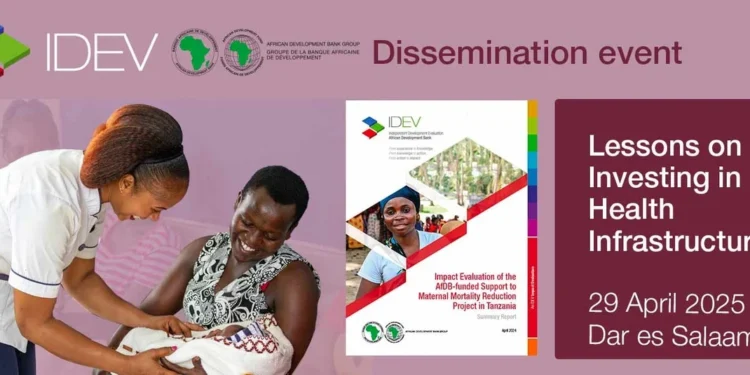Tanzania has achieved a reduction of over 30% in maternal mortality and 25% in child mortality thanks to the Maternal Mortality Reduction Support Project, implemented between 2006 and 2015. This progress, financially supported by the World Bank and recently evaluated by the Independent Development Evaluation (IDEV) of the African Development Bank, positions the country as a regional leader in the prevention of avoidable deaths.
At an event organized in collaboration with the Bank’s Office in Tanzania, national authorities, public health experts, and international partners highlighted how improvements in healthcare infrastructure, the expansion of emergency obstetric services, and the training of medical personnel were key to achieving these results. Zanzibar and several regions of the mainland were the main beneficiaries of these interventions.
The evaluation not only celebrates the progress made but also provides a roadmap for future projects under the Strategy for Quality Health Infrastructure in Africa (SQHIA 2022–2030). Participants agreed that sustaining these outcomes will depend on the adoption of innovative financing strategies and the integration of national priorities into health investment programs.
Tanzania demonstrates that strengthening health systems, focusing on prevention and equitable access, can transform the life prospects of millions. The Tanzanian model reinforces the African Development Bank’s commitment to promoting sustainable solutions that prioritize maternal and child health across the continent.
With these results, Tanzania stands as an inspiring example for Africa, moving towards a future where maternal and child mortality increasingly becomes a tragedy of the past.









